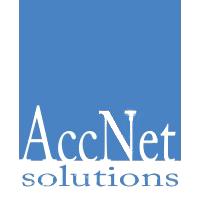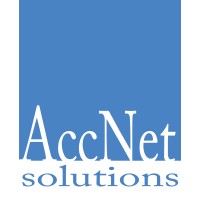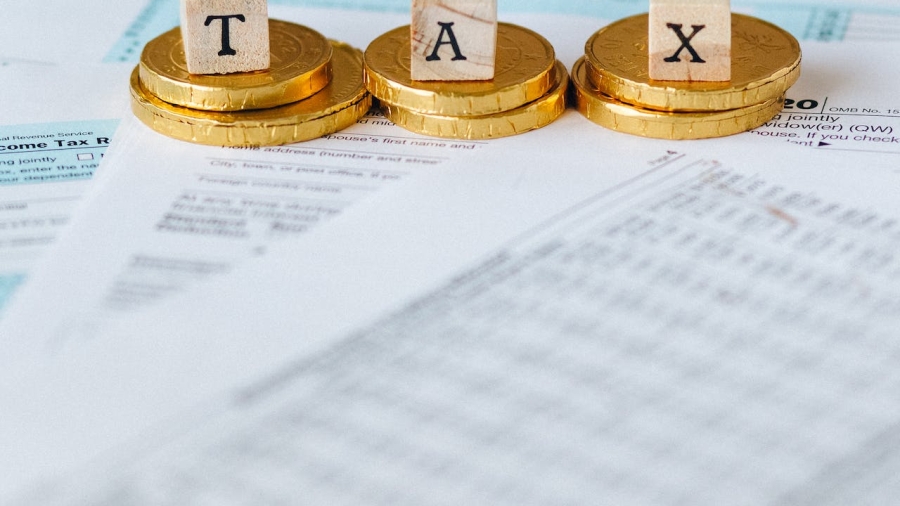The Freelancer’s Guide for maximizing Tax Deductions.
Navigating the terrains of freelance entrepreneurship can be quite daunting and exhilarating at the same time, especially when you wear multiple hats of responsibility. And we get it – tax talk doesn’t usually bring out the confetti, but trust us, this is one path to financial stability and you wouldn’t want to skip this!
Understanding the intricacies of tax deductions is not merely a financial strategy but a fundamental pillar for sustainable business growth. Through this comprehensive guide, we can take you through the nuances of maximizing tax deductions, with precision and prudence in mind. Whether you’re meticulously tracking every business-related expense, strategically allocating home office costs, or discerningly investing in tools and training, let this guide sharpen your knowledge of the system.
It all begins with a mindset change…
It’s not enough to acknowledge the rules; it’s about actively leveraging them to your advantage. Firstly, consider the regularity of your record-keeping. Instead of viewing it as a chore, see it as a proactive measure to account every business-related expense accurately. This simple shift ensures that when tax season arrives, you’re armed with a comprehensive record, ready to maximize deductions.
Next, stay attuned to regulatory updates. Set aside time periodically to acquaint yourself with any changes in tax laws that may impact your freelancing business. This awareness enables you to adapt your strategy accordingly, seizing new opportunities and safeguarding your financial interests.
You can also consider these tips, to maximize deductions…
- Foolproof Record-Keeping:
The foundation of tax success lies in meticulous record-keeping. Utilize digital tools like QuickBooks or Xero to track every expense. Did you grab a coffee for that client meeting? That’s £3.50 potentially saved. Bought a new software subscription? That’s a deduction waiting to happen. These seemingly small expenses add up, and claiming them can significantly impact your tax liability.
- Claiming Home Office Expenses:
Working from home? Calculate the exact proportion of your home used for business purposes. Let’s say your home office takes up 15% of your total living space. If your annual rent or mortgage interest is £12,000, you can claim £1,800 (15% of £12,000) as a deduction. The same principle applies to council tax, utilities, and repairs. This strategy not only eases the burden on your wallet but also adheres to tax regulations.
- Travel Expenses:
Freelancers are constantly on the move. Let’s break down the numbers – if you spend £500 on train tickets and £200 on petrol for business-related trips throughout the year, that’s £700 in deductible travel expenses. Ensure you keep receipts and maintain an accurate log of your journeys, differentiating between personal and business use to stay compliant.
- Equipment and Tools:
Investing in business-enhancing tools is a smart move. Suppose you spend £1,500 on a new laptop or camera. Through capital allowances, you can spread this cost over several years, maximizing the relief on your taxes. It’s not just a purchase; it’s an investment in your business, with long-term financial benefits.
- Training and Professional Development:
Staying ahead in your field is crucial. Let’s say you invest £600 in a professional development course. This expense is not just an investment in your skills but also a deductible business expense. Factor in these costs, and you’re not just advancing your career; you’re also reducing your taxable income.
- Insurance Premiums:
Protecting your business is paramount. Suppose you pay £400 annually for professional indemnity insurance. That’s £400 you can deduct from your taxes, ensuring both your business and your finances are safeguarded.
- Pension Contributions:
Planning for the future is a wise move. If you contribute £2,000 to your pension, you’re not only securing your financial future but also eligible for tax relief. This contribution reduces your taxable income, resulting in lower overall taxes.
- Charitable Donations:
If you’re feeling philanthropic and donate £300 to a registered charity, that’s £300 you can deduct from your taxable income. It’s a win-win – you’re supporting a cause you believe in, and the taxman recognizes your generosity.
It’s more than just tracking your receipts…
It’s also about understanding allowable expenses and being in the know about the latest updates in tax regulations.
For instance, did you know that the UK government often updates the rules around allowable expenses? So, keeping an eye on tax updates is more than just a good habit; it’s a proactive measure to stay ahead of the financial curve.
Got overlapping personal and business expenses?
It’s quite common for freelancers to use personal assets, such as a mobile phone or home internet, for business purposes.
While these are legitimate business expenses, the challenge lies in determining the fair proportion that can be claimed without raising eyebrows during a tax audit. This is where a proper understanding of the tax guidelines comes into play. These subtleties that can elevate your tax strategy from merely compliant to strategically advantageous.
While knowledge can be your greatest ally, it also helps to have Companion who has plenty of experience navigating the tax landscape. Here at AccNet, we can take this burden off your shoulders or simply guide you through the process with our expert team of professionals. Get in touch with us today, on +44 207 097 3767.
Navigating the terrains of freelance entrepreneurship can be quite daunting and exhilarating at the same time, especially when you wear multiple hats of responsibility. And we get it – tax talk doesn’t usually bring out the confetti, but trust us, this is one path to financial stability and you wouldn’t want to skip this!
Understanding the intricacies of tax deductions is not merely a financial strategy but a fundamental pillar for sustainable business growth. Through this comprehensive guide, we can take you through the nuances of maximizing tax deductions, with precision and prudence in mind. Whether you’re meticulously tracking every business-related expense, strategically allocating home office costs, or discerningly investing in tools and training, let this guide sharpen your knowledge of the system.
It all begins with a mindset change…
It’s not enough to acknowledge the rules; it’s about actively leveraging them to your advantage. Firstly, consider the regularity of your record-keeping. Instead of viewing it as a chore, see it as a proactive measure to account every business-related expense accurately. This simple shift ensures that when tax season arrives, you’re armed with a comprehensive record, ready to maximize deductions.
Next, stay attuned to regulatory updates. Set aside time periodically to acquaint yourself with any changes in tax laws that may impact your freelancing business. This awareness enables you to adapt your strategy accordingly, seizing new opportunities and safeguarding your financial interests.
You can also consider these tips, to maximize deductions…
- Foolproof Record-Keeping:
The foundation of tax success lies in meticulous record-keeping. Utilize digital tools like QuickBooks or Xero to track every expense. Did you grab a coffee for that client meeting? That’s £3.50 potentially saved. Bought a new software subscription? That’s a deduction waiting to happen. These seemingly small expenses add up, and claiming them can significantly impact your tax liability.
- Claiming Home Office Expenses:
Working from home? Calculate the exact proportion of your home used for business purposes. Let’s say your home office takes up 15% of your total living space. If your annual rent or mortgage interest is £12,000, you can claim £1,800 (15% of £12,000) as a deduction. The same principle applies to council tax, utilities, and repairs. This strategy not only eases the burden on your wallet but also adheres to tax regulations.
- Travel Expenses:
Freelancers are constantly on the move. Let’s break down the numbers – if you spend £500 on train tickets and £200 on petrol for business-related trips throughout the year, that’s £700 in deductible travel expenses. Ensure you keep receipts and maintain an accurate log of your journeys, differentiating between personal and business use to stay compliant.
- Equipment and Tools:
Investing in business-enhancing tools is a smart move. Suppose you spend £1,500 on a new laptop or camera. Through capital allowances, you can spread this cost over several years, maximizing the relief on your taxes. It’s not just a purchase; it’s an investment in your business, with long-term financial benefits.
- Training and Professional Development:
Staying ahead in your field is crucial. Let’s say you invest £600 in a professional development course. This expense is not just an investment in your skills but also a deductible business expense. Factor in these costs, and you’re not just advancing your career; you’re also reducing your taxable income.
- Insurance Premiums:
Protecting your business is paramount. Suppose you pay £400 annually for professional indemnity insurance. That’s £400 you can deduct from your taxes, ensuring both your business and your finances are safeguarded.
- Pension Contributions:
Planning for the future is a wise move. If you contribute £2,000 to your pension, you’re not only securing your financial future but also eligible for tax relief. This contribution reduces your taxable income, resulting in lower overall taxes.
- Charitable Donations:
If you’re feeling philanthropic and donate £300 to a registered charity, that’s £300 you can deduct from your taxable income. It’s a win-win – you’re supporting a cause you believe in, and the taxman recognizes your generosity.
It’s more than just tracking your receipts…
It’s also about understanding allowable expenses and being in the know about the latest updates in tax regulations.
For instance, did you know that the UK government often updates the rules around allowable expenses? So, keeping an eye on tax updates is more than just a good habit; it’s a proactive measure to stay ahead of the financial curve.
Got overlapping personal and business expenses?
It’s quite common for freelancers to use personal assets, such as a mobile phone or home internet, for business purposes.
While these are legitimate business expenses, the challenge lies in determining the fair proportion that can be claimed without raising eyebrows during a tax audit. This is where a proper understanding of the tax guidelines comes into play. These subtleties that can elevate your tax strategy from merely compliant to strategically advantageous.
While knowledge can be your greatest ally, it also helps to have Companion who has plenty of experience navigating the tax landscape. Here at AccNet, we can take this burden off your shoulders or simply guide you through the process with our expert team of professionals. Get in touch with us today, on +44 207 097 3767.



